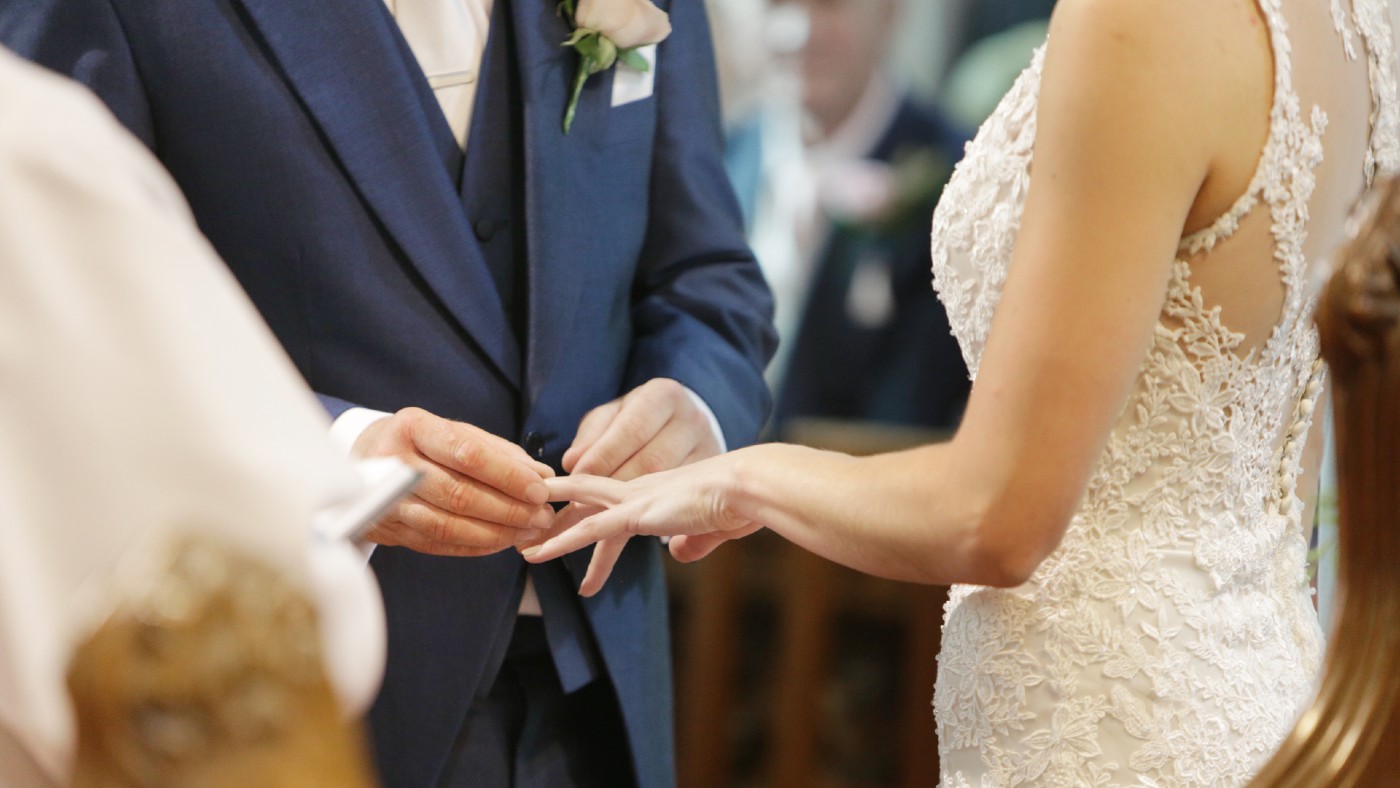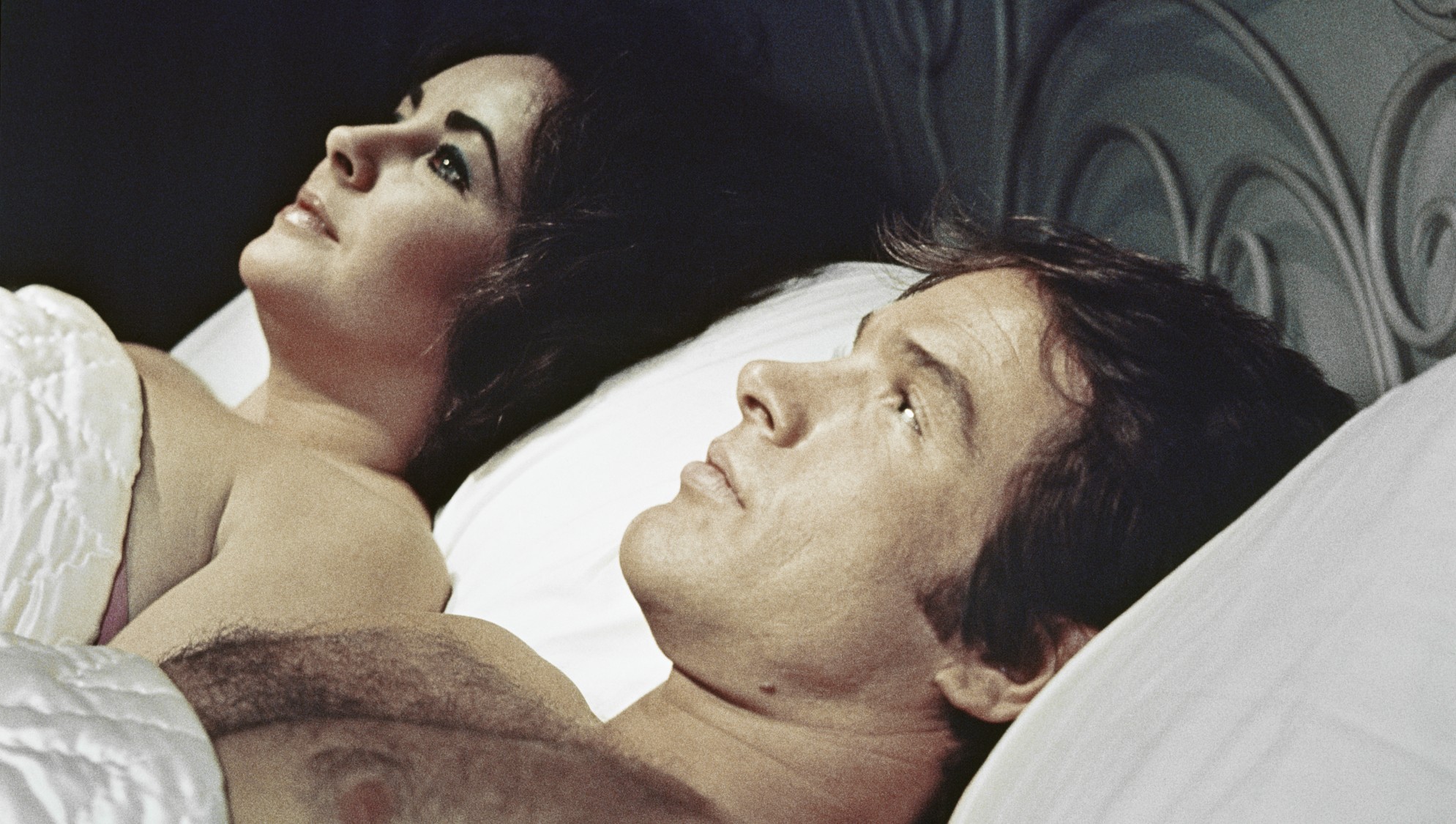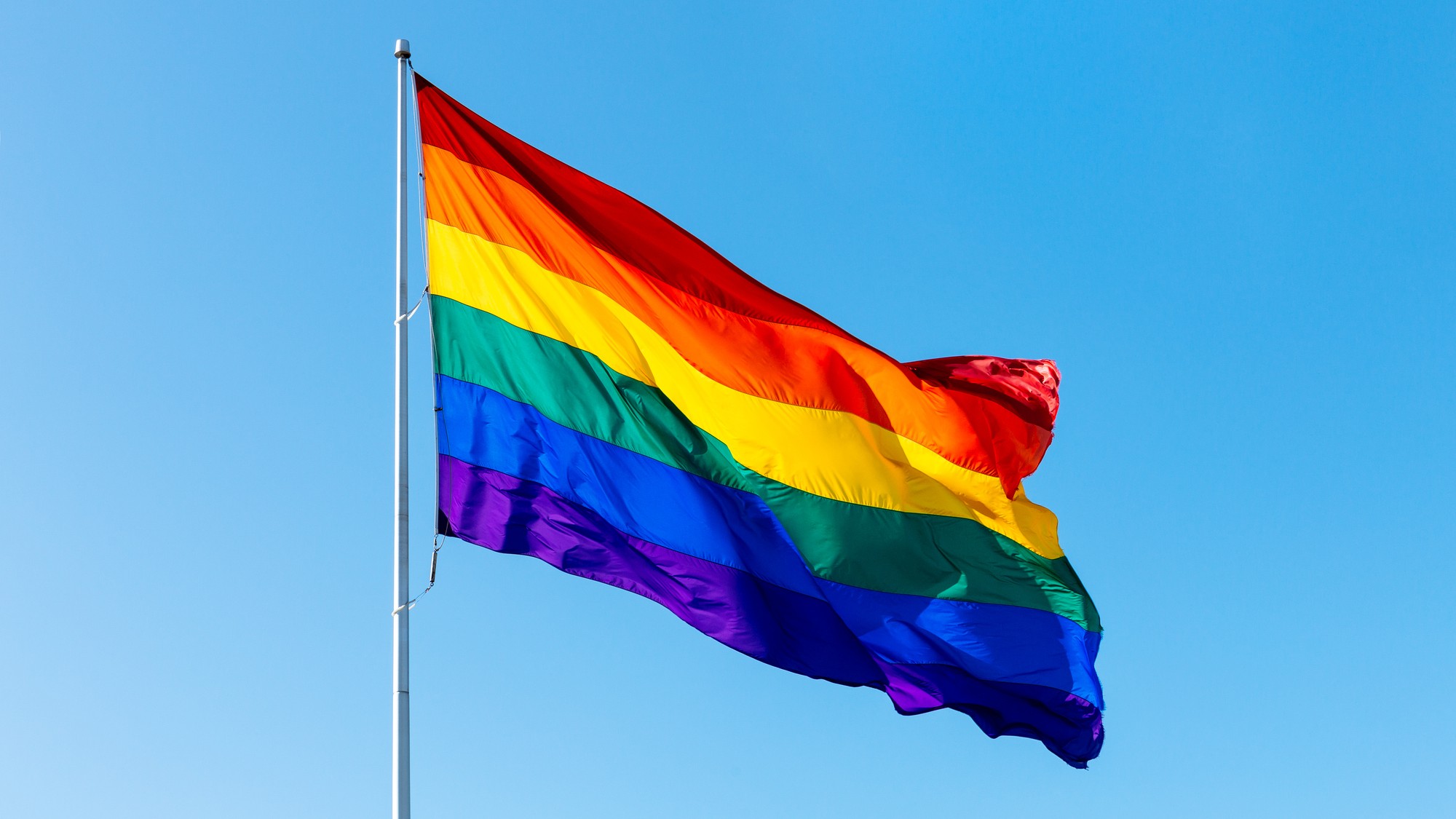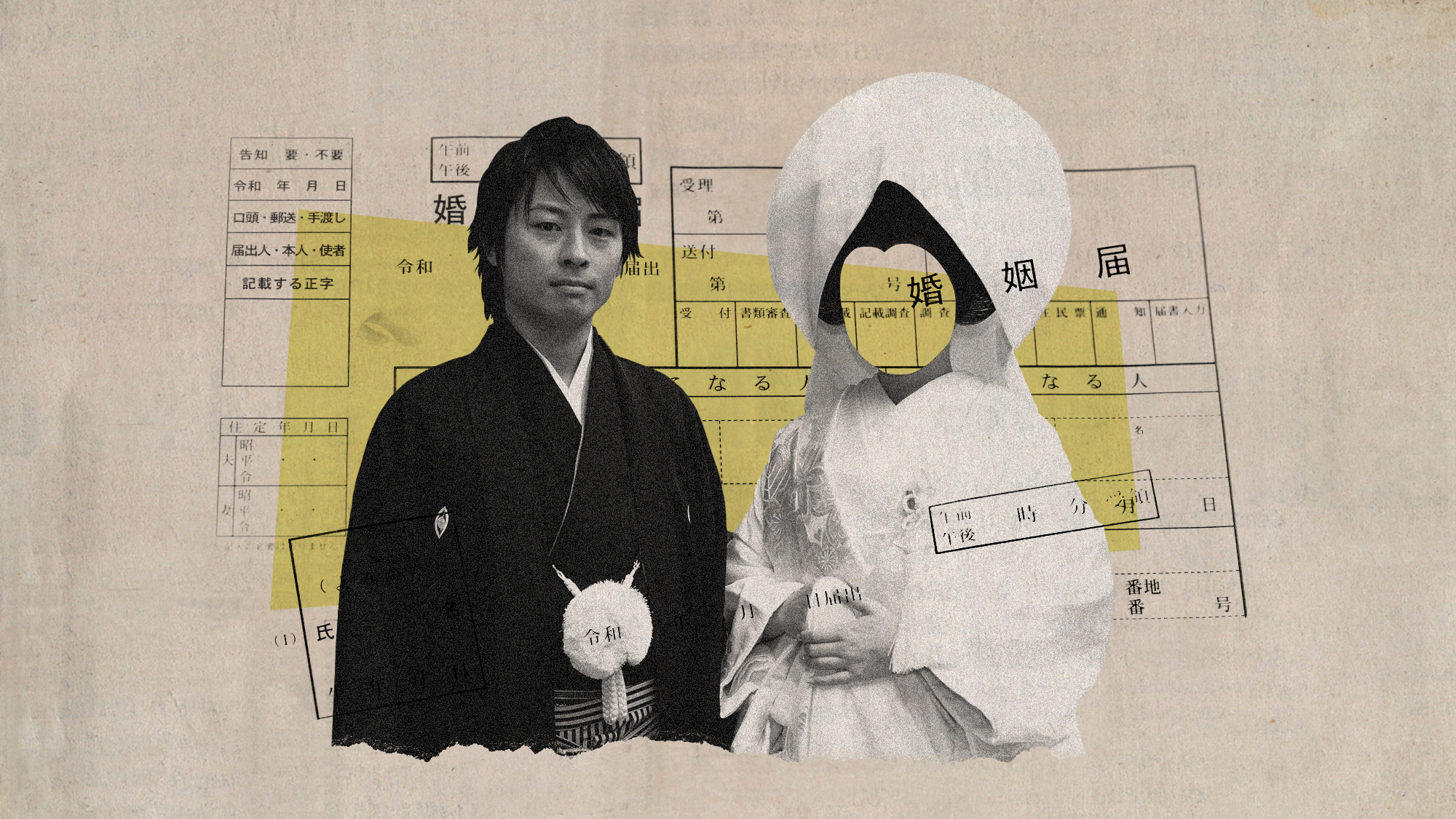The pros and cons of marriage
Fewer couples in the UK are choosing to tie the knot – but those who do are staying together longer

A free daily email with the biggest news stories of the day – and the best features from TheWeek.com
You are now subscribed
Your newsletter sign-up was successful
It is a commonly quoted fact that nearly half of all marriages end in divorce – but this does not tell the whole story.
While the overall divorce rate in the UK is 42%, data from the Office for National Statistics revealed this has been gradually falling in recent years. In 2022 the lowest number of divorces since 1971 was recorded while the median duration of marriages – how long they last – has steadily risen, with stats showing if you stay together for more than a decade, you're much more likely to stay the course in the long term.
Yet if divorce rates have declined it is also true that the number of people choosing not to marry in the first place has also fallen. The last census for England and Wales showed that the proportion of adults who have never been married or in a civil partnership increased from 26% in 1991 to 38% in 2021. "The number of people getting married is at the lowest rate on record," said the Office for National Statistics.
The Week
Escape your echo chamber. Get the facts behind the news, plus analysis from multiple perspectives.

Sign up for The Week's Free Newsletters
From our morning news briefing to a weekly Good News Newsletter, get the best of The Week delivered directly to your inbox.
From our morning news briefing to a weekly Good News Newsletter, get the best of The Week delivered directly to your inbox.
Marriage has morphed into a "very different social phenomenon from what it was", said Tom Calver in The Sunday Times.
Here are some of the main arguments for and against choosing to tie the knot.
Pro: 'formalising' relationship
For many people, formalising a relationship in the eyes of the law – or God – is a way of taking a partnership to the next level. "There is something to be said about a true union," Barbie Adler, founder of matchmaking company Selective Search, told Brides magazine. "Marriage is the ultimate commitment."
According to the magazine, even couples who have lived together for years "say they feel more at ease once they said their vows". And "for many, marriage brings a sense of security, a grounding they can't get any other way".
A free daily email with the biggest news stories of the day – and the best features from TheWeek.com
Con: old-fashioned institution
Nearly a quarter of Brits surveyed by YouGov in 2024 thought marriage was an outdated institution. "Back in the 1400s when people were getting married, it was 'until death do you part'. Because people would get married as teenagers and somebody would die in their 20s or early 30s," wrote relationship coach and author David Wygant in an article for HuffPost. But most people live "a lot longer", and many "grow" and "evolve" in ways that mean they and their partner "no longer work well together".
Critics also point to the inherent sexism in some wedding traditions, such as a bride wearing a white dress to symbolise virginity, a groom asking a father's "permission" to marry his daughter, and women taking their husband's surname. It wasn't until 2021 that mothers of brides and grooms in England and Wales were included on marriage certificates alongside fathers. Changes in attitudes towards living together and having children out of wedlock also offer greater freedoms.
Marriage "no longer has the same sanctity" it perhaps once did, and many who are not "concerned with the religious connotations" may not see the point, said the law firm Grayfords. Overall, many couples simply don't "feel the need" to be married, which is a "sign of the changing times".
Pro: financial security
Married couples can pass money and assets to each other tax-free, which can save a "significant amount of money if you want to sell assets that would incur capital gains tax", because "splitting or co-owning an asset with your partner would double the tax-free portion", said Investors' Chronicle. Other financial benefits include the marriage tax allowance, a tax perk that allows a spouse to use a portion of their partner's personal allowance "if they earn less than the value of the personal allowance and you are a basic-rate income tax payer", the magazine explained.
People who are married or in civil partnerships also have more financial protection if they separate than unmarried couples who split. In the event that "your marriage or civil partnership ends, you can ask for financial support – known as 'spousal maintenance' – from your ex-partner as soon as you separate", in addition to any child maintenance, said Citizens Advice. By contrast, unmarried couples don't have to support each other financially after splitting.
And marriage or civil partnerships can provide a degree of financial security for a spouse whose partner dies. Unmarried couples do not automatically inherit anything when their partner dies if there is no will in place, unlike their married peers. Surviving spouses may also be entitled to their partner's state pension after they die, depending on their level of National Insurance contributions.
"The biggest advantage after saying 'I do' is that your earnings typically go up and your expenses go down," Stacy Francis, founder and CEO of Francis Financial, a wealth management boutique in New York, told Hermoney.
"This leads to married couples accumulating more assets than their non-married counterparts", while if you’re going into a two-income household, you may benefit from a "more beefed up balance sheet", says Francis. This can help couples better qualify for a mortgage or other loans if they apply individually.
Con: divorce rates
While they may be falling, high divorce rates are still a major factor in people choosing not to get married. "Studies have shown that children of divorce in Europe and North America are less likely to marry and more likely to cohabit with a partner instead," said the research centre Population Europe.
Since the introduction of the contraceptive pill in the 1960s there has been the "evaporation of the social incentive to marry" said Calver. More couples now cohabit as a precursor to marriage and more babies are now born out of wedlock than in it.
Harry Benson, research director of the Marriage Foundation, argued those deciding to get hitched today fall into two distinct categories: "deciders" choose to marry because they actively want to, "sliders" for the large part are cohabiting couples who drift into marriage through inertia and who often end up getting divorced.
Pro: excuse for a party
Weddings are a rare chance to bring a couple's nearest and dearest together to celebrate. For many couples, it is one of the best days of their lives.
Weddings can be a "powerful" way for couples to "stand up in front of their family and friends and declare their love for one another", said Brides magazine. "It’s a way to bring your partner into your family officially and tie your two worlds together."
Con: weddings costs
The average cost of a wedding in the UK in 2023 was £20,700, according to an annual survey by Hitched published last year.
This was up nearly 20% from 2021's average wedding spend of £17,300. With rising inflation hiking the cost of tying the knot, the survey found one in 10 took out a loan to finance their wedding, and another 1 in 10 used credit cards to spread the costs.
With the cost-of-living crisis hitting households nationwide, a growing number of couples may be unwilling or unable to splash out on their big day. The cost of a wedding, which is a "huge expense", can slip down the list to make way for "competing saving priorities", said Grayfords. For many, the costs of buying or renting a house or having children are more important.
Richard Windsor is a freelance writer for The Week Digital. He began his journalism career writing about politics and sport while studying at the University of Southampton. He then worked across various football publications before specialising in cycling for almost nine years, covering major races including the Tour de France and interviewing some of the sport’s top riders. He led Cycling Weekly’s digital platforms as editor for seven of those years, helping to transform the publication into the UK’s largest cycling website. He now works as a freelance writer, editor and consultant.
-
 The ‘ravenous’ demand for Cornish minerals
The ‘ravenous’ demand for Cornish mineralsUnder the Radar Growing need for critical minerals to power tech has intensified ‘appetite’ for lithium, which could be a ‘huge boon’ for local economy
-
 Why are election experts taking Trump’s midterm threats seriously?
Why are election experts taking Trump’s midterm threats seriously?IN THE SPOTLIGHT As the president muses about polling place deployments and a centralized electoral system aimed at one-party control, lawmakers are taking this administration at its word
-
 ‘Restaurateurs have become millionaires’
‘Restaurateurs have become millionaires’Instant Opinion Opinion, comment and editorials of the day
-
 Quiet divorce is sneaking up on older couples
Quiet divorce is sneaking up on older couplesThe explainer Checking out; not blowing up
-
 How coupling up became cringe
How coupling up became cringeTalking Point For some younger women, going out with a man – or worse, marrying one – is distinctly uncool
-
 How AI chatbots are ending marriages
How AI chatbots are ending marriagesUnder The Radar When one partner forms an intimate bond with AI it can all end in tears
-
 Lavender marriage grows in generational appeal
Lavender marriage grows in generational appealIn the spotlight Millennials and Gen Z are embracing these unions to combat financial uncertainty and the rollback of LGBTQ+ rights
-
 'Mankeeping': Why women are fed up
'Mankeeping': Why women are fed upFeature Women no longer want to take on the full emotional and social needs of their partners
-
 Japan's surname conundrum
Japan's surname conundrumUnder the Radar Law requiring couples to share one surname hinders women in the workplace and lowers birth rate, campaigners claim
-
 Holy mate-trimony: the rise of 'friendship marriages'
Holy mate-trimony: the rise of 'friendship marriages'Under the Radar Young people in China, Japan and the US are saying 'I do' to platonic unions, to alleviate social pressure or loneliness and access financial benefits
-
 At home with the Clooneys: is arguing with your partner healthy?
At home with the Clooneys: is arguing with your partner healthy?Talking Point The actor and his wife claim to have never argued during their 10-year marriage